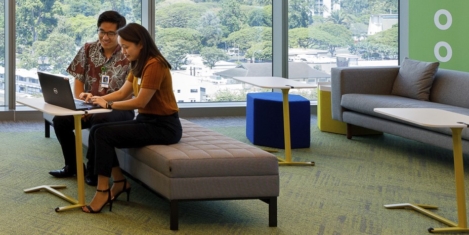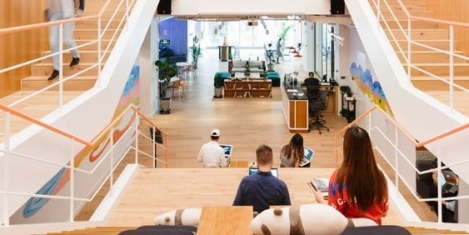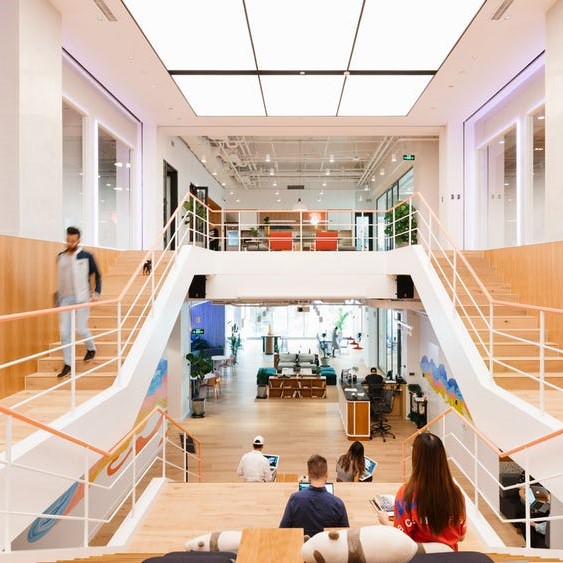September 10, 2019
Workers worldwide think they could outperform their own bosses
 Managers should seriously consider giving their employees the reins for a day to test new research that indicates seven out of 10 employees worldwide (69 percent) say they can do their boss’s job better, despite nearly the same number of workers (71 percent) grading their boss’s competence a B or better.
Managers should seriously consider giving their employees the reins for a day to test new research that indicates seven out of 10 employees worldwide (69 percent) say they can do their boss’s job better, despite nearly the same number of workers (71 percent) grading their boss’s competence a B or better.
The Global State of Managers research comes from The Workforce Institute at Kronos Incorporated and Future Workplace, which examined how nearly 3,000 employees in Australia, Canada, France, Germany, India, Mexico, the U.K., and the U.S. would grade their manager’s effectiveness across five factors: communication, competence, empowerment, professional development, and support.
According to the study, employees grade their managers high on competence but nearly fail them when it comes to work-life balance and job coaching. Overall, people feel managers are good at their jobs, with the majority of employees grading bosses an A or B for competence (71 percent) – the highest grade given – and work ethic (70 percent).
Bosses also received high marks (B or better) for their communication skills, people management skills, and ability to handle performance-related issues (all 67 percent). The older the employee, however, the more critical they are of their boss: Baby Boomers1 and Gen Xers grade managers more harshly with a C, D, or F for overall people management skills (37 percent and 38 percent, respectively). Worldwide, the employee-manager connection remains critically important: 70 percent of employees say their relationship with their manager is an extremely or very important factor when deciding to remain at their current job, with 22 percent agreeing it’s somewhat important. Millennial (79 percent) and Gen Z (73 percent) employees feel strongest about the importance of the manager relationship for retention compared with Gen X (66 percent) and Baby Boomer (62 percent) counterparts.
Other findings
- Nearly seven out of 10 people think they can do their boss’s job more effectively.
- While bosses worldwide are well regarded by their employees, these same employees think they could personally manage even more effectively, with younger Millennial (73 percent) and Gen Z (70 percent) employees most confident they could do better.
- Based on grades given of a C, D, or F, at least one in three employees feel their manager could improve at modelling work-life balance (37 percent); their ability to coach for better job performance (37 percent); handling performance-related issues (33 percent); and communication (33 percent).
- For overall people management skills, the majority of workers would “pass” their boss with an A (26 percent), B (37 percent), or C (25 percent); yet 4 percent of employees give a solid F for performance.
- French, German, and U.K. managers graded worst for competence, while Indian and Mexican workers are happiest overall…with one big exception.
- Indian employees are by far the most satisfied with their managers, with at least eight out of 10 grading managers an A or B in every category. Conversely, French, German, and U.K. workers are by far the most pessimistic about manager performance, as those countries ranked in the bottom three in every category surveyed
- Most competent: India (87 percent); Australia (76 percent); Canada (75 percent); Mexico (75 percent); U.S. (71 percent); Germany (62 percent); U.K. (61 percent); and France (59 percent)
- Best communicators: India (90 percent); Mexico (74 percent); Australia (68 percent); Canada (68 percent); U.S. (67 percent); Germany (59 percent); France (58 percent); and the U.K. (56 percent)
- Hardest-working managers: India (81 percent); Australia (75 percent); U.S. (73 percent); Canada (72 percent); Mexico (70 percent); Germany (63 percent); U.K. (62 percent); and France (58 percent)
- Best job coaches: India (83 percent); Mexico (70 percent); U.S. (64 percent); Australia (63 percent); Canada (61 percent); France (56 percent); Germany (55 percent); and the U.K. (51 percent)
- Most adept at handling performance-related issues: India (86 percent); Mexico (73 percent); U.S. (70 percent); Australia (68 percent); Canada (66 percent); Germany (59 percent); U.K. (57 percent); and France (56 percent)
- Role models for work-life balance: India (80 percent); Mexico (70 percent); Canada (65 percent); U.S. (65 percent); Australia (62 percent); France (55 percent); Germany (55 percent); and the U.K. (53 percent)
Differences by sector and nationality
Despite rating their managers No. 1 in all categories, 95 percent of Indian employees still say they could do their boss’s job better all of the time (47 percent) or some of the time (48 percent). This sentiment is followed by 87 percent of Mexican workers and 71 percent of French workers. Canada (61 percent) and U.S. (59 percent) workers feel the least confident that they could do their boss’s job better – yet it’s still more than half of all employees.
Managers in the technology industry are on top overall, scoring highest marks (A or B) in people management (81 percent), communication (75 percent), and modeling work-life balance (70 percent). Professional services managers (e.g. accountants, engineers, lawyers) rank second-best, with 70 percent of employees grading them a B or better for people management and communication. Employees in the technology (77 percent) and finance (70 percent) sectors say they have a strong or very strong relationship with their boss, followed by manufacturing (62 percent); education (61 percent); retail (61 percent); and professional services (61 percent).
There is room for managers to model better work-life balance in frontline industries – i.e. those who must be present to do their jobs – with 53 percent of employees in federal government, 42 percent in healthcare, and 42 percent in retail giving their boss a C or worse.
Regarding pure competence, managers are graded worst – C or lower – by public safety (44 percent); federal government (39 percent); transportation/distribution/logistics (35 percent); and healthcare (34 percent) employees. More than one in three employees give poor marks of a C or worse for their manager’s work ethic in federal government (37 percent); healthcare (34 percent); transportation/distribution/logistics (34 percent); and manufacturing (33 percent).
Image by Pixabay



































September 3, 2019
Work-life integration is the new goal for workers
by Nicole Bello • Comment, Flexible working, Technology
(more…)